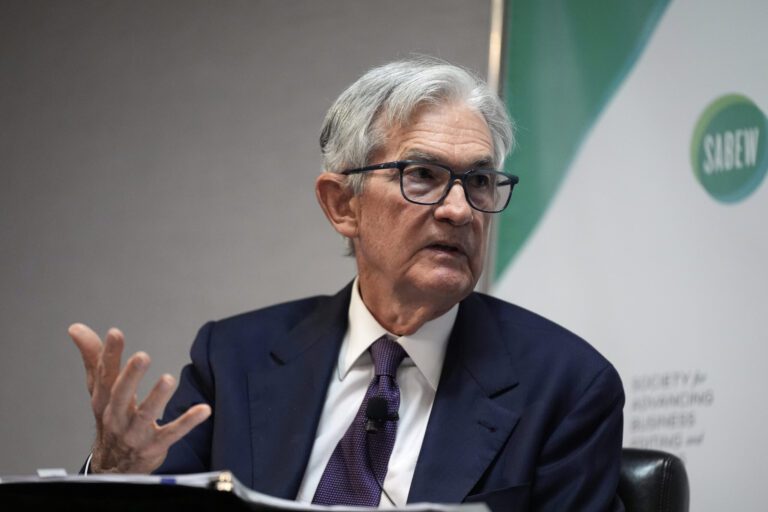Trump’s Attacks on Jerome Powell and the Federal Reserve: Who Has the Power to Fire?
President Trump’s recent criticisms of Federal Reserve Chairman Jerome Powell have reignited discussions about presidential authority over independent agencies. As legal scholars look toward an upcoming Supreme Court ruling, the implications for the Federal Reserve (Fed) are becoming increasingly significant.
Understanding the Case: Trump v. Wilcox
The case that has sparked this debate, Trump v. Wilcox, emerged after President Trump dismissed Gwynne Wilcox from her role on the National Labor Relations Board (NLRB). The NLRB, an independent federal agency tasked with protecting employee rights, has board members who can only be removed for "neglect of duty or malfeasance." Wilcox argues that her termination without cause was unlawful.
Key Legal Precedent: Humphrey’s Executor v. United States
This case directly challenges the longstanding precedent established in Humphrey’s Executor v. United States (1935). This ruling limits the president’s ability to fire heads of independent, multimember agencies, allowing dismissals only for specific reasons such as inefficiency or malfeasance. The precedent was established after President Franklin D. Roosevelt attempted to remove Federal Trade Commission Commissioner William Humphrey due to policy disagreements.
Implications of the Humphrey’s Executor Ruling
- Restricts Presidential Power: The ruling curbs the notion of limitless executive removal powers.
- Safeguards Agency Independence: It protects agencies with quasi-judicial or quasi-legislative powers, such as the Securities and Exchange Commission, from political influence.
Impact of Recent Supreme Court Precedents
The landscape may shift with the recent ruling in Seilla Law LLC v. Consumer Finance Protection Bureau, where the Supreme Court determined that agency heads must be removable by the President at will. This ruling suggests that the president could potentially fire agency leaders without cause, raising questions about the status of independent agencies like the Fed.
Jerome Powell’s Perspective: During a recent speech at the Economic Club of Chicago, Powell expressed skepticism about whether the Trump v. Wilcox decision would impact the Fed. He stated, "That’s a case that people are talking about a lot. I don’t think that that decision will apply to the Fed, but I don’t know."
The Fed’s Independence and Economic Challenges
Proponents of maintaining an independent Federal Reserve argue that political pressures could jeopardize long-term economic stability. Without this independence, there is a risk that elected officials may prioritize immediate public favor over necessary but unpopular economic measures, such as raising interest rates during inflationary periods.
Economic Forecasts
In his recent remarks, Powell warned of potential economic repercussions from the president’s tariff strategy, predicting it could lead to:
- Higher Inflation: Increased costs of goods due to tariffs.
- Slower Economic Growth: Economic stagnation, leading to a potential stagflation scenario.
This outlook has raised concerns about the Fed’s ability to stabilize both inflation and unemployment rates.
Recent Criticism from President Trump
Following Powell’s warnings, Trump took to his platform on Truth Social, stating that Powell "is always TOO LATE AND WRONG" and asserting that his termination “cannot come fast enough.” He insisted, “If I want him out, he’ll be out of there real fast, believe me,” while accusing Powell of “playing politics” with interest rates.
Financial Market Reactions
The tensions between the president and the Fed chairman have not gone unnoticed on Wall Street, with stocks plummeting after Powell’s comments, citing investor unease.
Internal Caution from the Administration
Despite Trump’s public remarks, Treasury Secretary Scott Bessent has advised against firing Powell, warning that such a move could destabilize financial markets. Sources report that the administration plans to start searching for Powell’s successor in six months, a departure from Trump’s earlier stance where he indicated intentions to allow Powell to serve his full term until May 2026.
Conclusion
As the nation awaits the Supreme Court’s ruling in Trump v. Wilcox, the future of the Federal Reserve’s independence could be at stake. The debates surrounding executive power, agency autonomy, and economic management highlight the complexities of governance in turbulent economic times.
For more insight into the Federal Reserve and its impact on the economy, visit Investopedia or The Balance.
Stay Updated: The legal and economic landscape remains fluid. Keeping an eye on developments regarding the Supreme Court case and Powell’s future could provide crucial insights into the financial and political arenas.
Correction
An earlier version of this article misstated the selection process for members of the National Labor Relations Board; they are appointed by the president.


